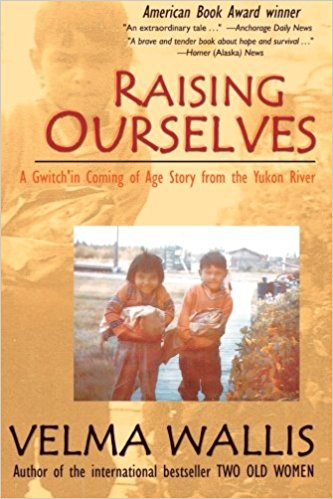Born in 1960, the sixth of thirteen children, Velma Wallis comes of age in a two-room log cabin in remote Fort Yukon, Alaska. Life is defined by the business of living off the land. Chopping wood. Hau
Born in 1960, the sixth of thirteen children, Velma Wallis comes of age in a two-room log cabin in remote Fort Yukon, Alaska. Life is defined by the business of living off the land. Chopping wood. Hauling water from the river. Hunting moose. Catching salmon. Trapping fur. Taking care of the dogs. For a thousand years, the Gwich'in clan had followed migratory animals across the north. But two generations before, the people had settled where the Porcupine River flows into the Yukon. Now, the Wallis family has a post office box and an account at the general store, and Velma listens to Wolf Man Jack on armed forces radio. The author discovers that her people have surrendered their language, traditional values, and religion to white teachers, traders, and missionaries. Flu epidemics have claimed many loved ones. Village elders seem like strangers from another land, and in a way they are. There is much drinking when the monthly government checks come, and that is when the pain comes out of hiding. Raising Ourselves is a gritty, sobering, yet irresistible story filled with laughter even as generations of Gwich'in grief seeps from past to present. But hope pushes back hopelessness, and a new strength and wisdom emerge.
Velma Wallis was born in Fort Yukon, a remote village of about 650 people in Interior Alaska, near where the Porcupine River flows into the Yukon. Wallis was raised in a tradtional Athabaskan family, one of thirteen children. When she was thirteen, her father died and she left school to help her mother raise her younger brothers and sisters. Later, she passed her high school equivalency exam and moved to a trapping cabin twelve miles from the village, where she learned to live off the land by hunting, fishing, and trapping. Wallis based her first two books, Two Old Women and Bird Girl and the Man Who Followed the Sun, on the Athabaskan stories her mother told her when she was growing up.
View Biographical note
